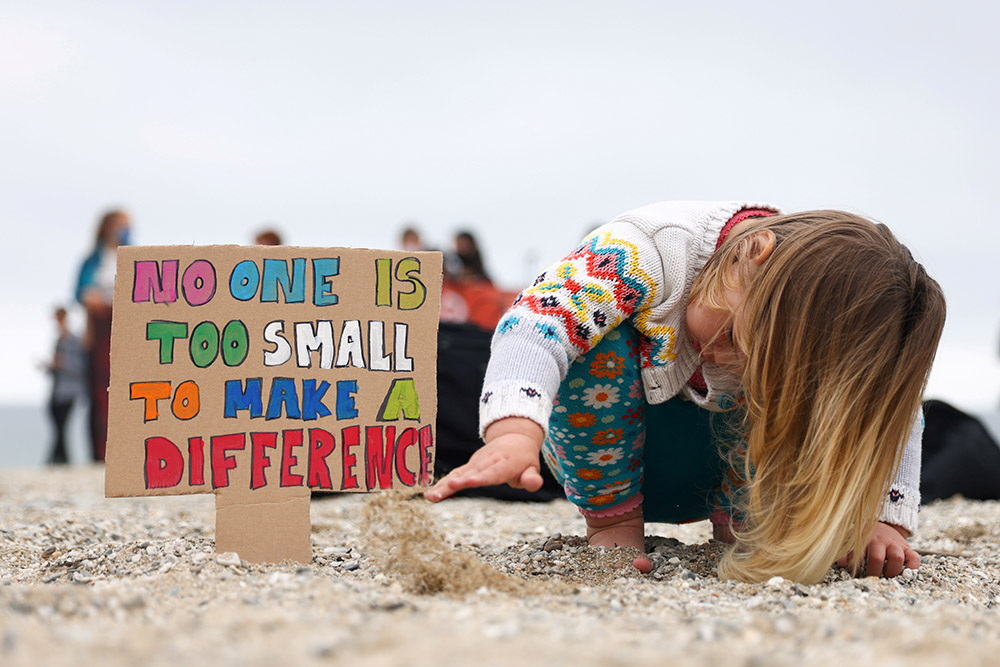NauMai September 2021
The sixth report of the UN Intergovernmental Panel on Climate Change (IPCC), which assesses scientific, technical, and socio-economic information about climate change, was published as The Physical Science Basis of Climate Change, on 9 August 2021.
Grim but not hopeless. A foreboding future but the potential for a better one, if immediate, systemic and sustainable action is taken. An urgent need to adapt to increasingly extreme weather. And a key role for faith communities in all of it.
Those were among the responses of religious groups to the major report on climate science from the United Nations Intergovernmental Panel on Climate Change (IPCC).
“No more words. We know what needs to be done. Hope will come from action.”

The UN Panel warned that within just over a decade the average global temperature could reach 1.5 degrees Celsius above pre-industrial levels – a critical threshold at which scientists say irreversible changes in ecosystems will occur, putting millions of people at risk.
Even if greenhouse gas emissions were drastically reduced immediately, the planet would still be likely to reach the 1.5 mark sometime in the 2030s because of the heat-trapping emissions already released into the atmosphere.
That poses a dual challenge, climate scientist Veerabhadran Ramanathan, a member of the Pontifical Academy of Sciences, told EarthBeat. While nations must sharply reduce emissions, especially by stopping the burning of fossil fuels, they must also ramp up efforts to help communities prepare to withstand the likely increase of extreme weather events. That’s where faith communities come in.
‘So we have to do two things at the same time: put new resources into building resilience in communities; on the other hand, cut down emissions so it doesn’t get worse.’
To get there, Ramanathan, a professor of oceanography at the Scripps Observatory at the University of California San Diego, said the world can’t depend on leaders alone. A ‘massive public outcry for action’ is also needed and he believes religious traditions ‘have a huge role to play’.
Rev Fletcher Harper agrees. But as the executive director of the multifaith climate organisation, GreenFaith, scanned coverage of the IPCC report, he winced at the doomsday angle that many stories took. Harper knows climate change presents an emergency to humanity, and that much must be done quickly to avoid mass catastrophe. But for him, the takeaway wasn’t the end times the climate problem presents, but the good news that solutions represent.
‘To me, the conundrum behind so much of this is that so many of those changes are possible and good,’ he told EarthBeat. ‘Everybody frets as if these changes represent the end of living well, when, in fact, the opposite is true. This is our pathway to a positive future.’
‘What religious communities need to do is to say we find hope in action on this,’ Harper said, adding that this can include raising awareness about climate science or lobbying for stronger responses from society. ‘No more words. We know what needs to be done. Hope will come from action.’
“A ‘massive public outcry for action’ is also needed and [Professor Ramanathan] believes religious traditions ‘have a huge role to play’.”
Faith groups were among many reacting worldwide to the first publication from the IPCC sixth assessment report, representing the most up-to-date and comprehensive review of the state of the climate.
The IPCC group of 234 authors from 66 countries concluded that all regions of the Earth have been impacted by climate change, that human activity has ‘unequivocally’ caused the planet to warm through greenhouse gas emissions, and that recent warming rates are unprecedented in at least 2,000 years.
They also outlined five scenarios of future emissions through the end of the century, all of which project that the planet will warm by 1.5 C, even if only temporarily, in the early 2030s.
‘If you go from 1 [degree] to 1.5 in about nine to 10 years, in principle, there could be a 50 per cent amplification of all the horror stories we’re seeing, these fires, storms, floods,’ said Ramanathan, who called the new report ‘the most ominous of all the IPCC reports’ since the first was published
in 1990.
Cardinal Blase Cupich of Chicago told EarthBeat in an emailed comment that the IPCC report reflected what Pope Francis wrote in his encyclical Laudato si’, on Care for Our Common Home’, which said, ‘Doomsday predictions can no longer be met with irony or disdain. …The effects of the present imbalance can only be reduced by our decisive action, here and now. We need to reflect on our accountability before those who will have to endure the dire consequences.’
Source: EarthBeat
EarthBeat is a weekly e-newsletter produced by National Catholic Reporter (NCR) with news and content about faith and climate change. NCR is a national independently owned and governed bi-weekly newspaper in the United States that reports on issues related to the Catholic Church.